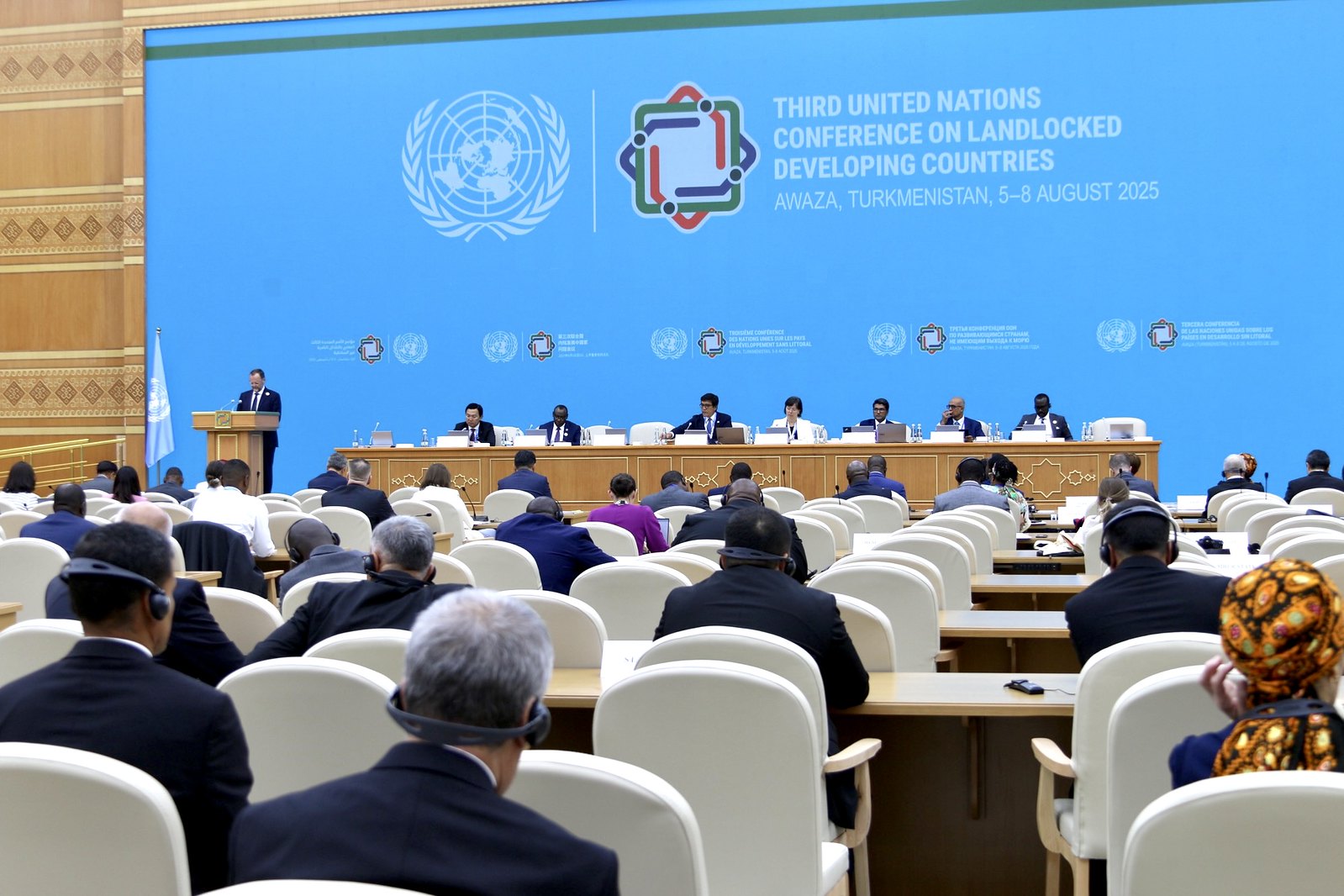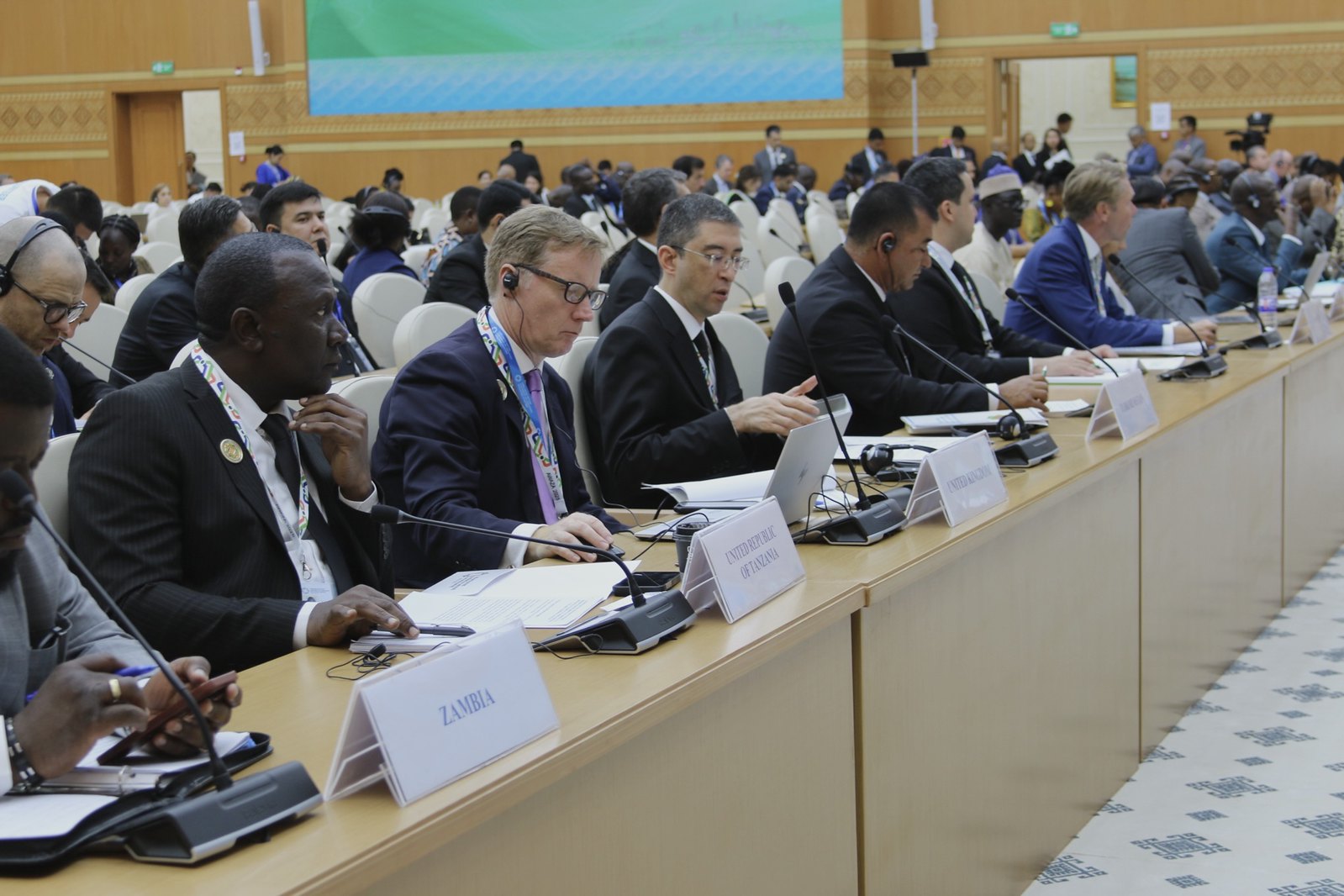Awaza, Turkmenistan, 5-8 August 2025 – The Third United Nations Conference on Landlocked Developing Countries (LLDC3) was held in the National Tourist Zone of Awaza. The large-scale event brought together more than 100 Heads of State and Government, representatives of over 50 international organizations, and more than 200 delegations from participating countries, including various UN entities, global financial institutions, academia, civil society, and the private sector.
The Conference concluded with the adoption of the Awaza Political Declaration and the endorsement of the Awaza Programme of Action for Landlocked Developing Countries for the Decade 2024–2034, which outlines global plans and strategic directions for the development of LLDCs through to 2034.

High-level thematic roundtable meeting. Photocredit to UN-OHRLLS
Representing the Scientific-Information Centre of ICSD (SIC ICSD), Mr. U. Muradov, Director of the SIC ICSD office in Uzbekistan, took part in the conference as a member of the official delegation of Uzbekistan, led by the Minister of Ecology, Environmental Protection and Climate Change, Mr. A. Abdukhakimov. In addition to attending plenary sessions, representatives of SIC ICSD actively contributed to the organization and presentation of Uzbekistan’s national pavilion, which showcased the country’s cultural heritage, natural resources, and commitment to sustainable development.
The Conference served as a pivotal forum for LLDCs, providing a unique platform to forge strategic partnerships and mobilize resources. Its overarching theme, “Accelerating Progress through Partnerships,” emphasized the importance of joint efforts to overcome geographical constraints and advance the Sustainable Development Goals.
 Roundtable meeting. Photocredit to UN-OHRLLS
Roundtable meeting. Photocredit to UN-OHRLLS
Thematic sessions addressed a range of issues, including “Enhancing Adaptive Capacity, Building Resilience and Reducing Vulnerability to Climate Change and Natural Disasters.” These discussions highlighted the crucial role of regional cooperation and innovative approaches in promoting environmental sustainability and socio-economic development.
As the host country, Turkmenistan played a pivotal role in advancing innovative and forward-looking initiatives aligned with the goals of LLDC3 (quote received from UN). These included:
- The Global Hydrogen Energy Transition Programme (2030–2040), positioning LLDCs as active participants in the global green energy shift.
- A Global Circular Economy Transition Framework, encouraging resource efficiency and sustainable production and consumption models.
- The Caspian Environmental Initiative, first proposed at UNGA78, addressing ecological and economic challenges affecting the Caspian Sea basin.
- Strengthened support for the UN Aral Sea Basin Programme, backed by General Assembly resolutions, to tackle one of the world’s worst environmental disasters.
The recommendations formulated and the strategic documents adopted provide a solid foundation for strengthening climate resilience, advancing digital transformation, improving transit infrastructure, and expanding regional cooperation in the decade ahead.
The event supports the achievement of:
| Priority area No 6 of REP4SD dedicated to SDG 17: “Strengthen the means of implementation and revitalize the Global Partnership for Sustainable Development” |
| 6.1 Involvement of the region into implementation of global environmental conventions, programmes and initiatives. |
| 6.2 Strengthening of cooperation among international organizations and regional and national institutions for better access to new technologies, preparation of legal and regulatory frameworks, development and implementation of national and regional strategies and plans and development of sustainable financing opportunities. |



